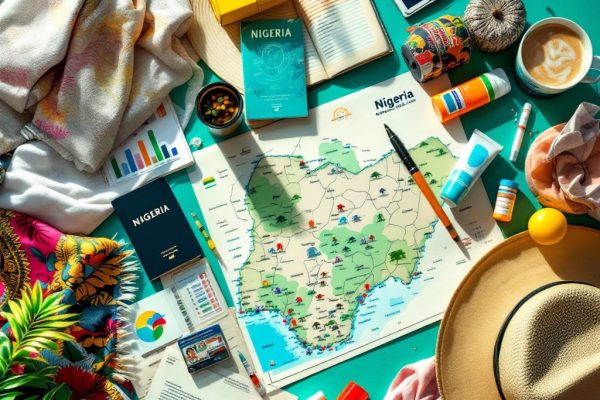Is Ethiopia Safe for Tourists? What You Need to Know
Planning a trip to Ethiopia? The rich culture and history await, but safety should be a top priority. This guide provides crucial information about regional safety concerns, including ethnic conflicts and civil unrest, impacting travel in areas like Tigray and Amhara. Learn about necessary health precautions, like malaria prevention, and essential safety tips for navigating transportation and protecting yourself from petty theft or more serious threats. Prepare for a safe and enriching journey by reading this comprehensive guide before you go!
Important information
- Ethiopia has safety concerns due to ethnic conflicts, violence, and terrorism, especially in certain regions.
- Avoid travel to Tigray, Afar, Amhara, Gambella, Benishangul-Gumuz, Oromia, SNNP, and border areas near Somalia, Sudan, South Sudan, and Kenya due to active conflicts and heightened risks.
- Be aware of petty theft and violent crime. Exercise caution, especially in crowded areas and unstable regions. Stay aware of your surroundings.
- Consult your doctor about necessary vaccinations and malaria prevention. Medical facilities are limited outside major cities. Pack a well-stocked first-aid kit.
- Register with your embassy upon arrival and keep emergency contacts readily available. Use reputable transportation and inform someone of your itinerary.
Is Ethiopia Safe for Tourists? Key Considerations
Ethiopia offers a safe and enriching travel experience, though certain areas may present safety concerns. Staying informed about current conditions and maintaining awareness of your surroundings is advisable. Travelers to Ethiopia should be aware of the eVisa Ethiopia requirement. More information can be found at eVisa Ethiopia.
Understanding the Security Situation
Ethiopia faces significant security challenges, including ethnic conflicts and violent clashes. These issues create a volatile and unpredictable environment. The threat of terrorism and civil unrest, especially in certain areas, further complicates the situation. Travelers should exercise extreme caution and stay informed about current events to minimize potential risks.
Volatile and Unpredictable Situations
Ethiopia’s security landscape is volatile, with conditions prone to swift changes. This instability often stems from ethnic tensions and outbreaks of violence. Staying informed is crucial, so rely on reputable news outlets and government travel advisories for vital updates.
Risks of Terrorism and Ethnic Conflicts
Regional terrorist groups pose a genuine danger to Western interests, increasing the risk of terrorism. Ethnic conflicts simmering worldwide can ignite into violence, creating instability that disrupts travel and jeopardizes tourist safety.
Impact of Demonstrations and Civil Unrest
Practical demonstrations effectively showcase products and ideas by offering firsthand experience. This direct interaction is highly persuasive, letting potential customers see and even try things themselves. For instance, a new kitchen gadget demo allows customers to understand its functionality and benefits far better than a simple description. Demonstrations also provide immediate feedback, questions are answered, and concerns addressed on the spot. A poorly planned demo can backfire, so careful preparation is essential. Consider demonstrations a vital communication tool, bringing your message to life. Here’s why you should use them:
Benefits of Product Demonstrations
- Engaging Experience: demonstrations offer a more engaging experience than static displays or descriptions, capturing audience attention and making your product memorable.
- Increased Understanding: by showing how a product works in real-time, demonstrations help potential customers grasp its functionality and value proposition more effectively.
- Immediate Feedback: demonstrations facilitate two-way communication, allowing for instant feedback, questions, and addressing of concerns, building trust and rapport.
Impact of Product Demonstrations
- Boosting Sales: effective demonstrations can significantly influence purchase decisions by showcasing the product’s benefits and addressing any hesitations.
- Building Confidence: when customers can see and try a product, they gain confidence in its performance and quality, leading to increased purchase intent.
- Creating Brand Advocates: positive demonstration experiences can turn customers into brand advocates who share their enthusiasm with others.
Travel Advisory and Areas to Avoid
Ethiopia currently faces significant security challenges. Several regions are experiencing active conflicts and heightened ethnic tensions, making travel dangerous. Active conflict persists in Tigray and bordering areas of Afar. All non-essential travel to these areas is extremely dangerous. The Amhara, Gambella, and Benishangul-Gumuz regions are also experiencing conflict. Reconsider any travel plans to these areas. Elevated ethnic tensions in Oromia and the Southern Nations, Nationalities, and Peoples’ Region (SNNP) warrant increased caution. Furthermore, border regions with Somalia, Sudan, South Sudan, and Kenya present heightened risks. Carefully weigh these factors before traveling to any of the mentioned areas.
Tigray and bordering areas of Afar: Active conflict persists, making all non-essential travel extremely dangerous.
Amhara, Gambella, and Benishangul-Gumuz: These regions are experiencing conflict, and all travel should be reconsidered.
Oromia and SNNP: Elevated ethnic tensions warrant increased caution when traveling.
Border regions: Areas bordering Somalia, Sudan, South Sudan, and Kenya present heightened risks.
Regions with Travel Restrictions
Travel restrictions exist for several Ethiopian regions due to ongoing conflict and crime. These include: Tigray, the Afar-Tigray border region, Amhara, Gambella, Benishangul Gumuz, Oromia, and the Southern Nations, Nationalities, and Peoples’ Region (SNNPR). Avoid all travel to these areas.
Tigray and Afar-Tigray Border Areas
The Tigray Region and the bordering Afar region are currently extremely dangerous due to ongoing conflict and civil unrest. Violence and crime are widespread, posing serious risks to travelers.
Government advisories strongly discourage all travel to these areas. Heed these warnings and avoid the region.
Amhara, Gambella, and Benishangul-Gumuz Regions
Ethiopia Travel Advisory: Regional Safety Concerns
The following regions in Ethiopia are currently considered unsafe due to sporadic violence, civil unrest, and criminal activity, including kidnappings:
- Amhara,
- Gambella,
- Benishangul-Gumuz.
Travel to these areas should be avoided.
Oromia and SNNP Regions
Ethnic and inter-communal violence plagues both the Oromia and SNNP regions, making travel unsafe. Avoid these areas.
Border Areas with Somalia, Sudan, South Sudan, and Kenya
Border regions near Somalia, Sudan, South Sudan, and Kenya pose significant risks to travelers. Cross-border conflicts, terrorist activity, and inter-communal violence are prevalent. These issues can disrupt essential services and hinder access to emergency assistance.
Reconsider any travel plans to these areas.
Crime and Safety Concerns
Traveling in Ethiopia requires vigilance. Violent crimes, such as kidnappings and ethnically motivated attacks, are a risk, particularly in unstable areas. Petty theft, including muggings and pickpocketing, also occurs, especially in crowded spots like markets and tourist attractions. Be mindful of your belongings and stay aware of your surroundings at all times. Exercise caution in these situations:
- Unstable areas: Be particularly cautious in regions known for instability, as these areas present a higher risk of violent crimes, including kidnappings and ethnically motivated attacks.
- Crowded areas: Petty theft, such as muggings and pickpocketing, is more common in crowded locations like markets and tourist sites. Be extra vigilant about your belongings in these environments.
- Maintaining awareness: Always stay aware of your surroundings. Being observant can help you identify and avoid potential threats.
Violent Crime and Petty Crime
Exercise caution in Ethiopia, as serious crimes like armed robbery and assault can occur. Petty theft, such as pickpocketing and bag snatching, is also a concern, especially in crowded areas. Remain vigilant, protect your belongings, and be aware of your surroundings.
Kidnapping and Ethnically Motivated Violence
Ethiopia faces serious security challenges, including kidnappings and ethnic violence. These risks are especially high near international borders and in conflict zones. Several regions are particularly dangerous:
- Tigray,
- Afar,
- Amhara,
- Benishangul-Gumuz,
- Gambella,
- Oromia, and
- Southern Nations, Nationalities, and Peoples’ Region (SNNP).
Border areas with Somalia, Sudan, South Sudan, and Kenya also pose significant threats. Travelers should exercise extreme caution in these volatile areas.
Muggings, Theft, and Public Safety
When exploring a new city, stay vigilant to protect yourself from theft. Be mindful of your belongings and maintain awareness of your surroundings.
Health Risks and Medical Precautions
Consult your doctor before traveling to Ethiopia to discuss necessary vaccinations and malaria prevention. Pack a well-stocked first-aid kit with essential medications, insect repellent, and sunscreen. Be aware of the altitude in certain areas of Ethiopia and take precautions to avoid altitude sickness. Stay hydrated by drinking plenty of bottled water and avoid tap water. Be cautious about food consumption, opting for well-cooked meals and avoiding raw or undercooked foods. Respect local customs and traditions, dress modestly, and learn a few basic Amharic phrases to enhance your interactions with locals. Arrange transportation in advance, especially if traveling outside of major cities, and consider hiring a local guide for a richer cultural experience. Purchase a local SIM card for convenient communication and internet access. Inform your bank and phone provider about your travel dates to prevent any issues with your accounts. Be mindful of your belongings and avoid displaying expensive jewelry or electronics. Stay updated on the current political and security situation in Ethiopia and heed any travel advisories issued by your government.
Vaccinations and Health Insurance
Staying up-to-date on your routine vaccinations is crucial. Equally important is comprehensive health insurance that includes coverage for medical evacuations, a vital safeguard for any traveler.
Malaria and Other Health Risks
Consult your doctor about antimalarial medication, as malaria becomes a significant risk in some parts of Ethiopia following rainfall. Discuss vaccinations and preventative measures for other diseases like typhoid, cholera, and yellow fever with a healthcare professional. Preparation is key.
Medical Facilities and Emergency Services
Medical resources are limited outside of Addis Ababa and Ethiopia’s main urban centers. Pre-trip planning is essential, including locating hospitals and understanding emergency procedures. A well-stocked first-aid kit and a supply of any necessary prescription medications are highly recommended.
Travel Tips and Safety Precautions
Traveling as a woman or solo requires increased vigilance, especially at night. Stick to well-lit and populated areas after dark, and always inform someone of your itinerary.
Transportation
Opt for reputable transportation services, such as official taxis or ride-hailing apps. Pre-trip research on routes and transport options is essential. Avoid unmarked vehicles. Consider hiring a licensed guide for both enhanced safety and local insights.
Emergency Contacts
Keep emergency contacts readily available, including local police and your embassy. Upon arrival, register with your embassy; they can provide valuable updates and assistance if needed. Familiarize yourself with local emergency numbers.
Safety Measures for Women and Solo Travelers
Women traveling alone should dress respectfully and observe local customs. Avoid walking alone at night. Prioritizing safety is crucial, so consider using a reputable tour operator or joining a group tour for a more secure experience. For a safer and more enriching experience, consider these options:
- Dress respectfully and observe local customs, this shows cultural sensitivity and may reduce unwanted attention.
- Avoid walking alone at night, especially in unfamiliar or less populated areas.
- Choose reputable tour operators or group tours, these provide a structured and safer way to explore new destinations.
Public Transportation and Safe Travel Options
Several transportation options are available in Ethiopia. For safety, tourists should utilize reputable services.
Consider these safe transportation options:
- Hiring local guides or drivers,
- Booking private vehicles or organized tours,
- Using ride-sharing apps or taxis recommended by your hotel.
Other available transport means:
- Domestic flights and long-distance buses connect major cities,
- Renting a car offers flexibility (be aware of potentially challenging driving conditions and varying road quality).
Before traveling, inform someone of your plans and estimated arrival times for added security.
Emergency Contacts and Consular Assistance
For urgent assistance in Ethiopia, contact your embassy or consulate immediately. It’s also critical to save local emergency contacts in your phone, such as: police, fire, and ambulance services. Quick access to these numbers can be lifesaving.












